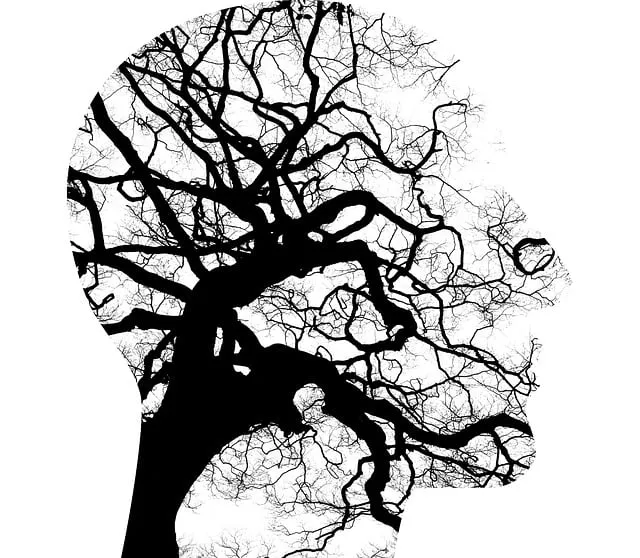In a world demanding better access to mental health support, Kaiser Permanente's focus on enhancing its mental health department is crucial. Coaching programs are emerging as an effective solution, addressing root causes of mental health issues and promoting self-awareness. A culturally sensitive approach, integrating resilience techniques and podcast series, aims to reach diverse patients. Strategic evaluation using evidence-based practices, structured assessments, and compassion cultivation ensures the program's effectiveness. This multi-faceted strategy contributes to improving the Superior Kaiser Permanente mental health department number by offering accessible, engaging coaching for overall well-being.
Mental wellness coaching programs are gaining prominence, especially within healthcare giants like Kaiser Permanente, where addressing mental health effectively is crucial. This article explores the development of such programs, focusing on three key aspects: understanding the growing need for mental wellness coaching, designing interventions tailored to Kaiser Permanente’s Mental Health Department, and implementing & evaluating strategies for superior outcomes. By leveraging evidence-based practices, these programs aim to significantly enhance the well-being of individuals within the organization.
- Understanding the Need for Mental Wellness Coaching Programs
- Designing Effective Coaching Interventions for Kaiser Permanente's Mental Health Department
- Implementation and Evaluation Strategies for Superior Mental Wellness Coaching Programs
Understanding the Need for Mental Wellness Coaching Programs

In today’s fast-paced world, mental wellness has become a paramount concern for individuals across various demographics, leading to a growing recognition of the necessity for comprehensive coaching programs. The Superior Kaiser Permanente mental health department number serves as a testament to this rising demand for accessible and specialized support. Mental wellness coaching programs offer a unique approach to fostering self-awareness exercises, emotional intelligence, and positive thinking, addressing not just symptoms but also the root causes of stress, anxiety, and other mental health challenges.
These programs are designed to empower individuals with the tools and strategies needed to navigate life’s complexities more effectively. By integrating evidence-based techniques and tailoring them to individual needs, coaching sessions can significantly enhance overall well-being. This proactive approach not only promotes better mental health but also translates into improved performance in daily activities, relationships, and career pursuits.
Designing Effective Coaching Interventions for Kaiser Permanente's Mental Health Department

Designing effective coaching interventions for Kaiser Permanente’s mental health department requires a nuanced approach that caters to the diverse needs of its patients. With a focus on cultural sensitivity in mental healthcare practice, coaches can create tailored strategies that resonate with individuals from various backgrounds and experiences, ensuring inclusive support. By integrating resilience-building techniques into these programs, coaches empower clients to navigate challenges with greater adaptability and fortitude.
Furthermore, leveraging the growing popularity of mental wellness podcast series production offers an innovative way to reach a broader audience within Kaiser Permanente. Podcast-based interventions can provide valuable resources and share evidence-based practices, making mental health coaching more accessible and engaging for those who may be hesitant to engage in traditional face-to-face sessions. This multi-faceted approach has the potential to significantly enhance the quality and accessibility of mental wellness support within the organization, catering to a superior Kaiser Permanente mental health department number.
Implementation and Evaluation Strategies for Superior Mental Wellness Coaching Programs

Implementing a mental wellness coaching program requires strategic evaluation to ensure its superiority and effectiveness. The Kaiser Permanente mental health department can lead the way by adopting evidence-based practices and tailored interventions. Regular monitoring of participant progress through structured assessments and feedback mechanisms is crucial for gauging the program’s impact on burnout prevention, a key aspect of self-care routine development for better mental health.
Furthermore, incorporating compassion cultivation practices into coaching sessions has shown promise in enhancing emotional resilience and overall well-being. Evaluating these strategies can involve qualitative methods like participant interviews and focus groups to understand their experiences and perspectives. Quantitatively, tracking improvements in mental health metrics such as stress levels, mood stability, and coping mechanisms provides concrete data for refining the program and ensuring it meets the evolving needs of individuals seeking mental wellness coaching.
Mental wellness coaching programs, as demonstrated by Kaiser Permanente’s innovative approach, hold significant potential in enhancing overall well-being. By designing interventions tailored to individual needs and employing robust implementation strategies, organizations like Kaiser Permanente can ensure superior outcomes for their mental health departments. These programs not only support employees’ mental health but also contribute to increased productivity and job satisfaction, ultimately fostering a healthier and more engaged workforce.






